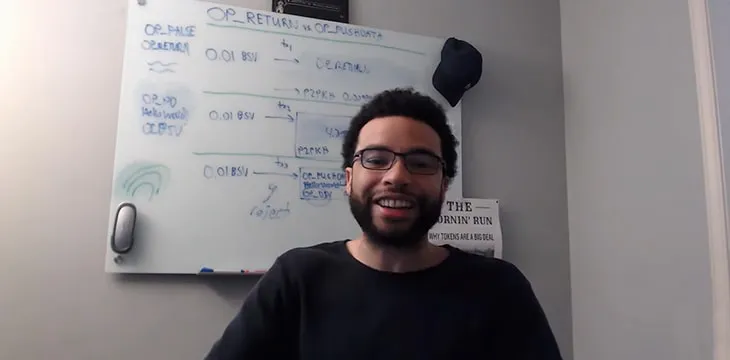|
Getting your Trinity Audio player ready...
|
BSV developer and content creator Joshua Henslee released another video to kick-start a discussion on how Bitcoin SV might bring back a purer internet experience. Check it out below.
The problem with the internet today
Henslee begins by explaining what Really Simple Syndication (RSS) is. It’s a pure text feed that allows users to subscribe and see content from their favorite publishers without actually visiting their websites.
What RSS delivers is a clean, user-friendly experience without the barrage of cookies and ads that plague the modern internet. Henslee remembers the internet in its early days and notes how the user experience degenerated and was much better back then. He hopes that Bitcoin can play a role in returning us to something like the way it used to be.
Henslee points out that all of the big tech companies that control today’s internet, such as Twitter, Facebook, and Google, have killed off support for RSS. That’s because they can’t effectively monetize their users on these third-party feeds; they can’t drop cookies, collect data, and serve ads in the same way.
In saying all of this, Henslee correctly identifies the key problem with the internet today: it’s controlled by huge corporations that put mining data ahead of user experience and even user safety and mental health. Although he hasn’t fully thought through how it might work yet, he believes that the BSV blockchain can play a role in correcting this.
How can Bitcoin help?
Henslee acknowledges that this video is more about getting the conversation going than providing solutions as to how this might work. He asks the viewers and the wider community to pitch ideas as to how feeds like RSS can be implemented into Bitcoin to solve the monetization issue and reignite interest in solutions like RSS.
One potential way he identifies is to give users who have made a payment of at least $1 (for example) access to your RSS feed for that month. With all payments logged on the BSV blockchain, it should be possible to even automate this process.
Another possible way is by implementing paywalls, although Henslee doesn’t think this idea has legs. Paywalls are one of the major problems with the internet today, and integrating them into text feeds like RSS isn’t likely to go down well with users.
Bitcoin will change the internet completely
Henslee ends the video by asking users for their thoughts on how ideas like this might work. For example, what role could micro and nano payments play?
While the answers remain unknown for now, one thing is certain—the extractive, data-mining model of the internet has got to go. It has ruined the internet, allowed mass-scale censorship and control to flourish in free and democratic countries, and platforms like Instagram operate with no regard for the wellbeing of users.
Bitcoin was designed to disrupt all of this by ushering in an era of data sovereignty and micropayments. The middlemen who have profited for too long face the beginning of the end of their business models and some of them know it.
Until the Bitcoin revolution unfolds and disrupts the way the internet works, Henslee and other developers could use a little help from the wider community on how these Bitcoin solutions might work. Why not head over to Henslee’s YouTube channel and share your thoughts?
Watch: CoinGeek Zurich panel, Small Payments, Big Power: Micro & Nano-Payments with BSV

 07-11-2025
07-11-2025 





